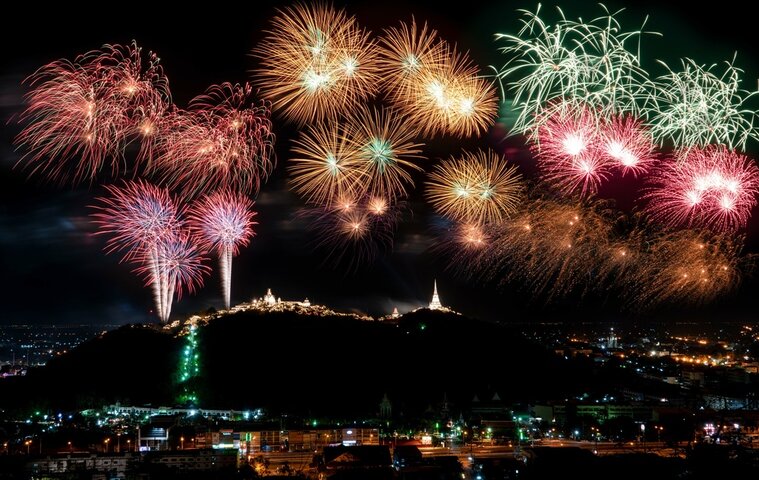Developing of cooperation processes in irrigation water Management under public management 4.0 of the Pranburi Water Transmission and Maintenance Project, Prachuap Khiri Khan Province
Main Article Content
Abstract
This mixed-method research aimed to 1) Study the level of the collaboration process in irrigation water management, 2) Compare the collaboration process in irrigation water management based on personal characteristics, 3) Study the causal relationship of Public Administration 4.0 on the collaboration process in irrigation water management, and 4) Develop the collaboration process in irrigation water management under Public Administration 4.0 of the Pranburi Irrigation Project, Prachuap Khiri Khan Province. The sample consists of 138 personnel from the Pranburi Irrigation Project and 12 key informants. The research instruments include questionnaires and interviews. Descriptive statistical analysis involves percentages, mean, and standard deviation, while inferential statistical analysis involves t-tests, one-way ANOVA, and multiple regression analysis. The results of the study found that 1) The collaboration process in irrigation water management is at the highest level. 2) Personal characteristics such as gender, age, education level, occupation, and average monthly income are not related to the collaboration process in irrigation water management. 3) Public Administration 4.0 outcomes have a statistically significant causal relationship with the collaboration process in irrigation water management at the 0.001 level. Additionally, the focus on operational systems and strategic planning has a statistically significant causal relationship with the collaboration process in irrigation water management at the 0.05 level. 4) The development of the collaboration process in irrigation water management under Public Administration 4.0 of the Pranburi Irrigation Project, Prachuap Khiri Khan Province, emphasizes creating joint work plans and developing key projects for irrigation water management. It aims to create an open environment, promote new ideas in irrigation water management, and communicate openly to build understanding and trust among personnel.
Article Details

This work is licensed under a Creative Commons Attribution-NonCommercial-NoDerivatives 4.0 International License.
References
กองส่งเสริมการมีส่วนร่วมของประชาชน. (2563). การบริหารจัดการชลประทานโดยเกษตรกรมีส่วนร่วมด้านการส่งน้ำและบำรุงรักษา (สำหรับแนะนำเกษตรกร). สำนักงานส่งเสริมการมีส่วนร่วมของประชาชน.
ฉัตรชัย พุ่มชูศักดิ์. (2564). รูปแบบการจัดการศึกษาที่บูรณาการการเรียนรู้กับการทำงานของสถานศึกษา สังกัดสำนักงานคณะกรรมการการอาชีวศึกษา. วิทยานิพนธ์หลักสูตรการศึกษาดุษฎีบัณฑิต, สาขาวิชาการบริหารการศึกษา: มหาวิทยาลัยนเรศวร.
นราพร กลัดจิตร กลัดจิตร, ปัทมพร โพธิปัทมะ, และ กัมปนาท วงษ์วัฒนพงษ. (มกราคม-กุมภาพันธ์ 2567). การมีส่วนร่วมของประชาชนในการบริหารจัดการน้ํา. วารสารการบริหารและสังคมศาสตร์ปริทรรศน์, 7(1), 301-314.
บุลากร ชื่นตา. (2560). การออกแบบความร่วมมือทางการศึกษาในระบบทวิภาคีตามนโยบายภาครัฐ: กรณีศึกษา วิทยาลัยเทคโนโลยีฐานเทคโนโลยีกับสถานประกอบการประเภทศูนย์บริการรถยนต์. รัฐศาสตรมหาบัณฑิต (บริหารรัฐกิจและกิจการสาธารณะ), คณะรัฐศาสตร์: มหาวิทยาลัยธรรมศาสตร์.
ปุณยวีร์ หนูประกอบ, และ วิยุทธ์ จำรัสพันธ์. (2562). รูปแบบการบริหารจัดการความร่วมมือภาคสาธารณะในการป้องกันอุทกภัย อำเภอเกาะสมุย จังหวัดสุราษฎร์ธานี. วิทยานิพนธ์ปริญญาปรัชญาดุษฎีบัณฑิต, มหาวิทยาลัยขอนแก่น.
ภิญญดา ชูก้อนทอง. (มกราคม –เมษายน 2557). การพัฒนาสมรรถนะหลักของพนักงานส่วนตำบลเพื่อเพิ่มขีดความสามารถในการบริการสาธารณะขององค์การบริหารส่วนตำบลในจังหวัดเพชรบุรี. วารสารวิชาการ Veridian E-Journal, 7(1), 395-406.
มงคล เกศามูล, สุดารัภรณ์ อรุณดี, และ อนันต์ ธรรมชาลัย. (2566). การมีส่วนร่วมในการบริหารจัดการน้ำชลประทานของเกษตรกรกลุ่มผู้ใช้น้ำ ฝ่ายส่งน้ำและบำรุงรักษาที่ 3 โครงการส่งน้ำและบำรุงรักษานครนายก. วารสารการบริหารจัดการและนวัตกรรมท้องถิน, 5(2), 281-293.
มนตรี นุ่มนาม. (2555). เครือข่ายความร่วมมือในการบริหารจัดการศิลปวัฒนธรรมโครงการประวัติศาสตร์และภูมิปัญญาท้องถิ่นเมืองบางขลัง จังหวัดสุโขทัย. วิทยานิพนธ์ปริญญาปรัชญาดุษฎีบัณฑิต, มหาวิทยาลัยศรีปทุม.
สันติ ปัญญา, และ กัมปนาท วงษ์วัฒนพงษ์. (2565). แนวทางการบูรณาการจัดทําแผนพัฒนาในระดับพื้นที่อําเภอ กรณีศึกษาอําเภอโพทะเล จังหวัดพิจิตร. Journal of Roi Kaensarn Academi, 7(7), 341-352.
สำนักงานคณะกรรมการพัฒนาระบบราชการ. (2566). เรียกใช้เมื่อ 29 พฤศจิกายน 2566 จาก คู่มือการประเมินสถานะของหน่วยงานภาครัฐในการเป็นระบบราชการ 4.0 ฉบับปรับปรุง พ.ศ.2566: https://www.opdc.go.th/content/Mjc3Mg.
สำนักส่งเสริมการมีส่วนร่วมของประชาชน. (2554). กลุ่มบริหารการใช้น้ำชลประทาน (พิมพ์ครั้งที่ 2). กรุงเทพมหานคร: กรมชลประทาน.
Agranoff, R. (2006). Inside Collaborative Networks: Ten Lessons for Public Managers (Special issues). Public Administrative Review, 66(6), 56-65.
Agranoff, R., & McGuire, M. (2003). Collaborative Public Management: New Strategies for Local Governments. Washington DC: Georgetown University Press.
Bryson, J. S., & Other. (2006). The Design and Implementation of Cross-Sector Collaborations: Propositions from the Literature. Public Administration Review.
Fung. (2006). Varieties of participation in complex governance. Public Administration Review, 66(s1), 66-75.
Green Samuel B. (1991). How Many Subjects Dose It Take to Do a Regression Analysis. Multivariate Behavioral Research, 26(3), 499-510.
H. Th. A., & Lulofs, K.R.D. Bressers. (2016). Analysis of boundary judgments in complex interaction processes.
Michael, M. (2006). Collaborative Public Management: Assessing What We Know and How We Know It. Retrieved January 21, 2567, from https://onlinelibrary.wiley.com
Nink, M., & Robison, J. (2019, February). Cooperation Is Key to an Agile Workplace. Retrieved January 21, 2567, from gallup: https://www.gallup.com/workplace/246908/cooperation-key-agile-workplace.aspx


